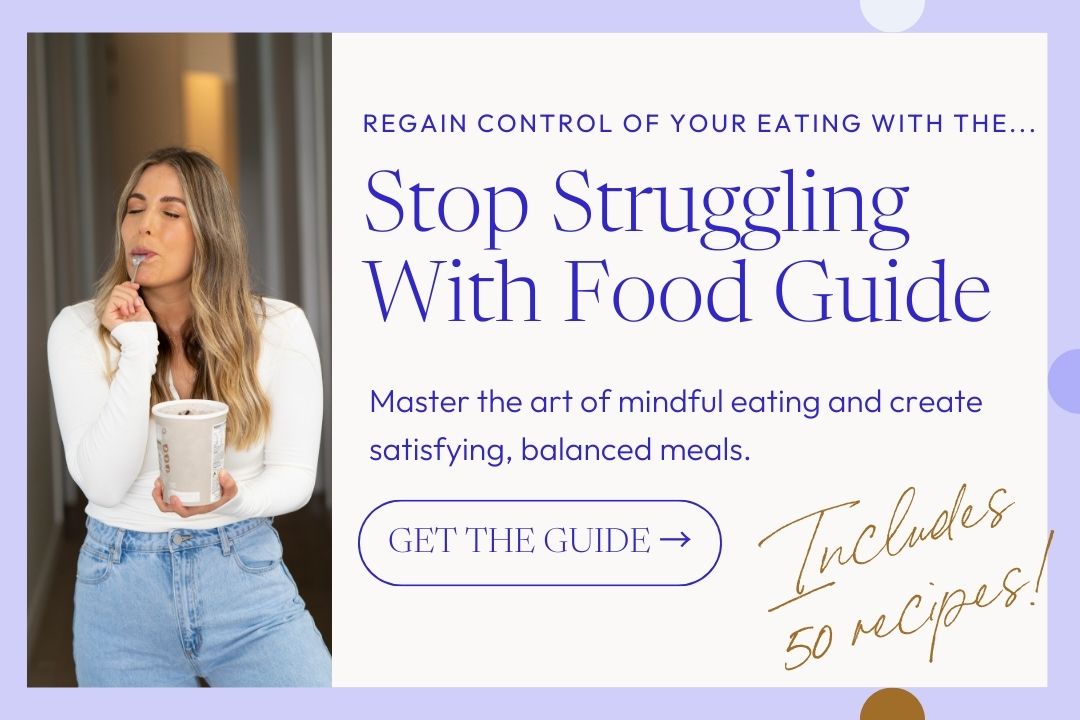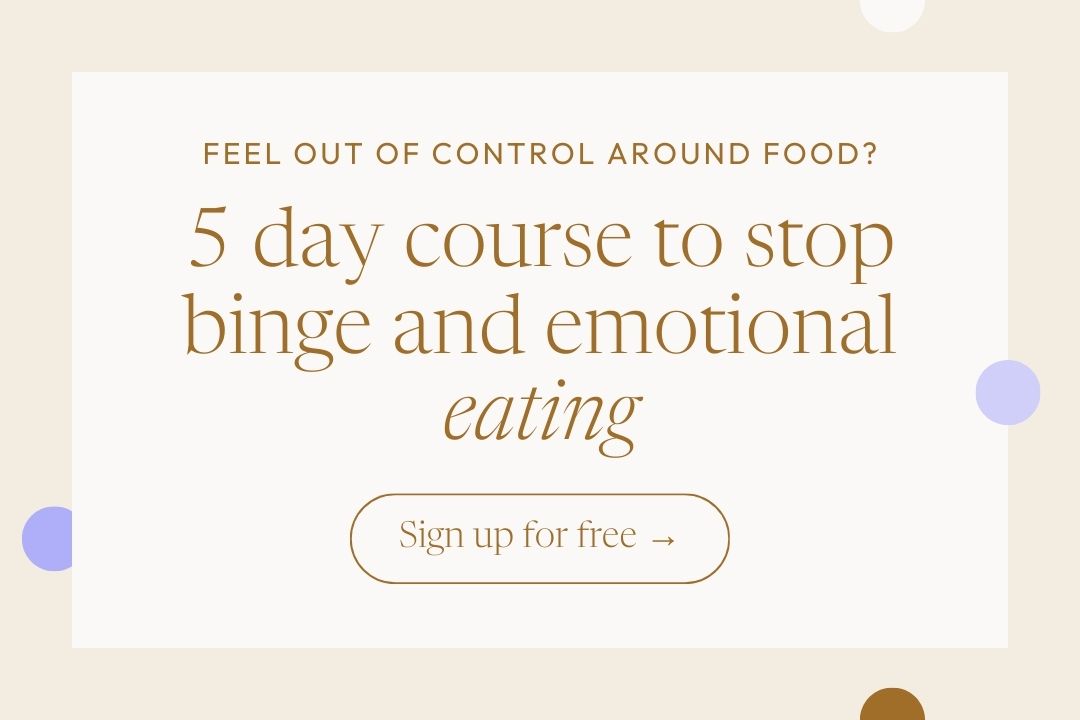Counting calories? Let’s have a chat about this topic that’s completely misunderstood and oversimplified.
Do you feel like you are doing all the “right” things but can’t seem to lose weight? You’re counting calories or counting macros. Never straying from the plan. And yet nothing seems to be happening?
If it feels like your body is fighting against you, it’s because your body IS fighting against you.
As it turns out, calorie counting might not be the golden ticket to health and happiness we’ve been led to believe.
The red herring of diet culture
Diet culture has done an excellent job of convincing us that controlling our weight through meticulous calorie tracking is the path to well-being.
In reality, this approach is fundamentally flawed. It’s a distraction from the more important aspects of health. Such as listening to our internal cues and eating food that’s both nourishing and satisfying.
Our bodies are incredibly smart. When we restrict calories or specific macronutrients, our body doesn’t see this as a step towards health. It perceives it as a threat. Restricting how much we eat can trigger a cascade of biological responses designed to protect us. This not only makes sustained weight loss nearly impossible. But can also lead to an unhealthy cycle of dieting, disordered eating and weight regain.
Plus, if you’re eliminating certain foods or food groups in fear of them being too high in calories, there’s a good chance you’re lacking in key nutrients your body needs.

Lesson from The Biggest Loser
Remember “The Biggest Loser”? There was a study conducted on the participants of this reality TV show, showcasing the downsides of extreme dieting and calorie restriction.
The study involved closely monitoring the basal metabolic rate (BMR) of the participants. BMR is the amount of energy our bodies expend while at rest. And a striking discovery was made. Participants experienced a significant drop in their BMR following the dramatic weight loss.
This reduced rate of energy expenditure didn’t fully bounce back. Even after some participants regained the weight they had lost. So, after undergoing extreme dieting, the participants’ bodies became more energy-efficient. Burning fewer calories in a state of rest than before the weight loss.
But wait, there’s more…
The study also measured the participants’ hunger and fullness hormones. Ghrelin is your hunger hormone which sends signals to your brain to say: “I’m hungry, time to eat”. After the participants lost weight, they had much higher ghrelin levels than before. Not only were they hungrier, their leptin levels dropped. Leptin is a hormone that tells us we’re full and satisfied with food. So, when it went down, it meant they didn’t feel as full.
And this is what dieting does. With each attempt, there’s a potential reduction in our metabolic rate. Some studies suggest that this slower metabolism may not revert to its pre-dieting state. This could explain why, despite eating the same amount of calories as before, managing weight becomes progressively harder and harder.

Weighing less isn’t making you healthier
The narrative that our weight defines our health has been pervasive. But research shows that being underweight is MORE harmful to your body than being overweight.
Your weight isn’t the problem you’ve been told it is. And fixating on it is making it harder to eat healthily, move your body with enjoyment and to like what you see in the mirror.
It’s no secret you can’t live your fullest life on an empty stomach. You’re meant for great things but can’t reach your potential or live your best life when all you think about is food.
This obsession can lead us down a path of restrictive eating, constant stress, and an unhealthy relationship with food and our bodies. Fixating on numbers – whether on the scale or in a tracking app – misses the big picture of what true health is about.
Being healthy is about how much energy you have. Whether you like yourself and feel at peace. If you can move your body freely and feel strong.
Of course, health is different for all of us including those with different abilities. And there are a number of ways to measure our health. But focusing on calorie counting with the goal of weighing less isn’t making you a healthier, happier human.
If counting every calorie and macro isn’t the answer, what is?
It’s no secret calorie counting is sabotaging your weight loss. And the key lies in adopting a more holistic approach to health. Tuning into your body’s natural hunger and fullness cues. Eating a variety of foods that bring you joy and nourishment. Moving your body in ways that feel good to you. And recognising that health cannot be boiled down to a single number or ratio.
Rather than striving for a specific weight or body shape, focus on habits that enhance your overall well-being. This might mean letting go of the food-tracking apps and learning to trust your body again. It’s a journey of self-discovery, self-acceptance, and ultimately, self-love.
So, let’s put down the calculators and try a better, more sustainable approach to health.

Or if you want more guidance with healthy eating – check out Back to Basics. It will help you take the guesswork out of planning, shopping and cooking to help make your life easier. PLUS you’ll find a whole bunch of healthy, non-diet (and freakin’ delicious) recipes and fun workouts to help you build healthy habits, that actually stick. Try it 7 days FREE!